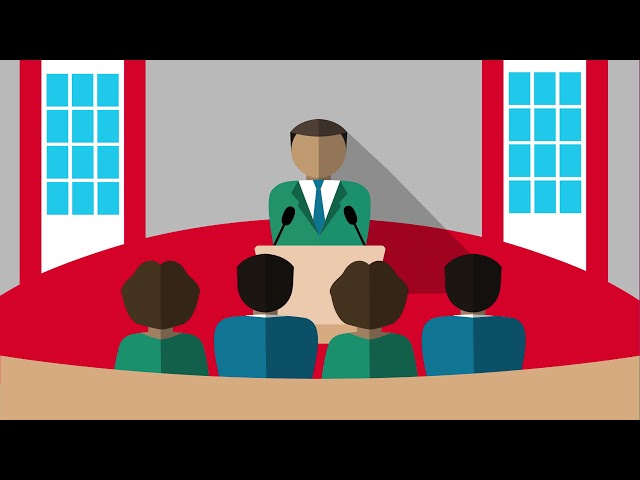You’ll often hear America referred to as an experiment. While the idea of a democratic system of government is no longer groundbreaking, it once was unheard of.
For the country’s founders, establishing the government we know today was charting new, unknown territory. This form of government is collectively better known as democracy and requires your active participation to work.
The idea behind democracy is to give the country’s citizens a voice and encourage the open exchange of ideas. While a particular viewpoint or philosophy may not win every time, that’s the point. Democracy flourishes when multiple perspectives are debated to reach common ground.
Local representatives are elected to hear, voice, and argue for their constituents. But they can’t do this if they don’t know what matters most to their communities.
That’s why citizens should know who represents them and the processes behind the policies impacting their daily lives. Let’s explore three reasons you should get to know who represents you and your community.
1. Identify What They Stand For

You want to know more than your elected officials’ names. When you cast your vote for a member of Congress and city council representative, you want to know where they stand. From their background and experience to how they’ve voted on previous bills, it matters.
This person is essentially your voice in the chambers of Congress, the Senate, and other commissions or committees. If your representatives are voting in ways you don’t like, they need to know. The same goes for championing initiatives you believe do more harm than good.
A rep’s job is to speak up for their communities’ best interests, but they may not have the complete picture. If they only hear from like-minded constituents or people with similar viewpoints, a rep may make skewed decisions. The ballot box is one tool citizens have to say who they want in office.
Reading through ballot guides and online resources for local elections gives you a snapshot of where officials stand. There’s the Los Angeles voter guide if you’re an Angeleno. You’ll also find online voting guides for your state. These guides provide info on incumbents and challengers, so you can be confident in who you’re voting for as your voice.
2. Policies Impact Your Pocketbook

Say you’ve been working for your employer for five years. Suddenly, you’re met with an agonizing decision. A close relative is ill and you need to care for them. Do you take unpaid leave or try to negotiate your schedule with your boss so you can keep earning income?
Federal FMLA leave gives you the option to take 12 weeks of unpaid leave during a 12-month period if you meet the requirements. Although this allows you to care for yourself and your family, it can set you back financially. What if you could take the same type of leave and still get paid?
Thanks to ballot measures championed by local officials, some states offer the equivalent of paid FMLA leave. Colorado, for example, implemented the FAMLI program where eligible employees can take up to 12 weeks of paid leave. In exchange for a small monthly payroll deduction, Colorado residents gain access to a stronger social safety net. They don’t have to debate between choosing whether to keep working or attending to their family’s well-being.
It’s one example of how getting to know your local representatives can impact your personal finances. Other examples include initiatives to temporarily raise property taxes to increase funding for public schools. The additional money would go toward building new facilities to address overcrowded classrooms and curriculum needs. Although you would pay a bit more in taxes, it could save you from paying private school tuition for your kids.
3. Understand Government Spending
You often hear disgruntled debates about government spending. One side gets accused of being “big spenders” while the other touts economic prowess. Partisan politics sometimes leads to deadlocks in passing helpful initiatives and the misnomer that the government should run like a business.
However, cutting taxes too steeply can also significantly contribute to budget deficits. For the government, taxes are the equivalent of sales revenue. Without enough coming in, the government can’t function properly. Collective needs in the community go unaddressed, public services decline, and an area’s quality of life can suffer.
Speaking with your local officials, including city councils, can reveal how governments allocate tax dollars. For instance, why are the streets on one side of town always flooded when it rains? You might be paying increased water and sewer rates to the city, but have concerns about where the money’s going.
The city council may be aware of the problem and outline why it still exists despite higher rates. Those added revenues may eventually be allocated for infrastructure improvements. However, the initial priority is to use the funds to improve water quality by upgrading equipment at the treatment plant. Gaining insights like these helps citizens understand how government spending works, in addition to what’s necessary for processes to run efficiently.
Get to Know Your Representatives

Your representatives are there to advocate for your community. The issues facing your city and state could range from job availability to an unsustainable increase in car thefts. Initiating conversations with who the public elects to represent them is part of the democratic process.
Reps can’t fully understand the issues at hand if they don’t hear from all sides of the spectrum. Furthermore, communities can’t vote in their best interests if they don’t understand how representatives are supporting those needs. Opening the lines of communication is the way to influence the resources and policies communities end up living with.







